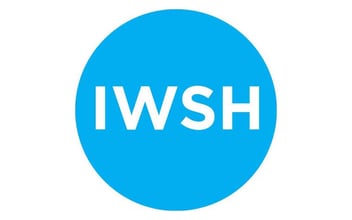At Walpole Island First Nation, an unceded region of southern Canada, a week of plumbing upgrades and repairs became something more.
This IWSH Community Plumbing Challenge brought community members together with skilled licensed plumbers to improve essential services at the community’s central gathering space and explore new possibilities in the skilled trades.
Plumbing Improvements at a Vital Community Hub
Walpole Island First Nation (WIFN) is an unceded territory of the Anishinabe (Ojibwa, Odawa, and Pottawatomi Nations) and is home to about 2,500 members in southwestern Ontario, Canada.
The Walpole Island Community Centre is a vital hub for youth activities, cultural events, and services like food distribution. It houses an ice rink that has long been a gathering place for community recreation, which is essential for many indigenous communities in Canada. The Community Centre's plumbing systems were old and stressed, compromising services at the Centre and straining the building’s undersized septic system and the community's aging water treatment facility.

Daniel Deleary, right, Manager of Special Projects for Indigenous Skills, Employment, Apprenticeship and Development (ISEAD)
Volunteer plumbers from UA Locals 46 (Toronto), 663 (Sarnia), and 527 (Kitchener) replaced nearly 40 outdated fixtures with high-efficiency toilets, faucets, urinals, and showerheads. These upgrades reduced water use, which alleviated demand on the septic system, and allowed the Centre to continue serving as a safe, reliable space for everyone.
Workforce Development in Action
The project’s deeper purpose went beyond plumbing repairs. As with every IWSH Community Plumbing Challenge, it was designed to build skills and opportunity from the ground up.
Walpole Island First Nation faces a challenge familiar to Indigenous and underserved communities worldwide: a shortage of trained tradespeople to maintain essential infrastructure. “We have not yet seen a skilled licensed plumber begin to offer service,” said Daniel Deleary, Manager of Special Projects for Indigenous Skills, Employment, Apprenticeship and Development (ISEAD). “What we’ve done this week is a transformative change that will have an impact on future generations.”

By integrating workforce development directly into the project, IWSH and its partners helped local youth and residents gain hands-on experience in basic plumbing maintenance. Through safety sessions, basic plumbing training, and supervised installation work, community volunteers learned how plumbing protects health and water resources—skills that can lead to meaningful careers close to home.
“We work with community youth and members so that they can learn about basic residential plumbing and hopefully inspire them to join the profession,” said Robyn Fischer, IWSH Senior Director for North America. “For many, it was their first chance to see what plumbing really means: protecting health, conserving water, and supporting community well-being.”

Before and after at the Walpole Island Community Centre.
The impact was visible in every moment of shared learning. “I grew up here, played hockey; we’ve been skating here forever,” said WIFN member and volunteer Jared Myers, who learned to repair a leaky shower because of the project. “Working with these guys, I’ve learned a lot. I feel great coming here, helping out and learning at the same time.”
Alanna Marklund, Special Representative for Indigenous Relationships with UA Canada, described the energy on site. “It’s so incredible to see the community members hands-on. They’re helping solder, they’re installing toilets and sinks, and they get to go home to their friends and family and say, look, that’s the sink I got to install in my own community center.”
“Just seeing all the different skills come together; it was absolutely amazing to be part of this group,” said Cindy Soney, a WIFN member and volunteer for the project.

A Model of Industry Collaboration
Each IWSH Community Plumbing Challenge brings manufacturers, labor, and local organizations into partnership, proving that small-scale, well-executed projects can deliver outsized impact.
At Walpole Island, it meant safer facilities, a more efficient water system, and a renewed sense of what skilled work can achieve when guided by care and collaboration.
For IWSH and its partners, the Walpole Island First Nation project is a demonstration of how the plumbing industry, when united for good, can help communities strengthen both their water systems and their future workforce.

.png?width=300&height=57&name=IWSH_Solid_Blue-Black_RGB%20(1).png)


